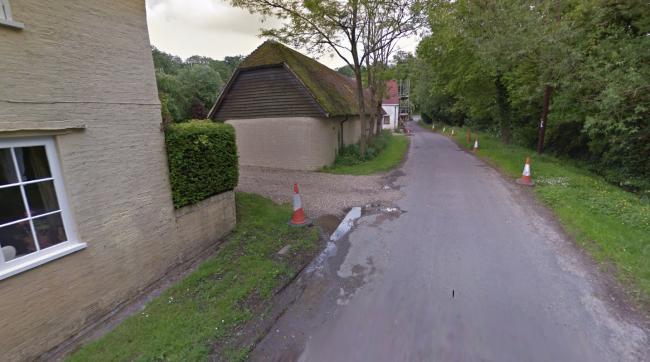MULTIPLE chances to help a Meon Valley man who later took his own life were missed, an inquest heard.
Roderick Williams was found dead on May 2 by police, who located the 54-year-old’s body in woodland in Warnford, where he was found hanged.
It was revealed that Mr Williams’ brewing business had been struggling and he had borrowed £75,000 from a friend which he was struggling to pay back.

However, Winchester Coroner’s Court heard there were failings in the way a 111 call was handled – in which Mr Williams, of River Lane, Warnford, expressed a plan to kill himself – as well as concerns relating to his GP.
The inquest heard Mr Williams called 111 on the morning of April 22, but the call handler failed to follow procedure several times, meaning an ambulance was not sent out.

Deborah Diffey, training manager for South Central Ambulance Service (SCAS) which runs the 111 service on behalf of the NHS, added an audit of the call revealed the handler “lacked the appropriate tone and warmth” with “no empathy expressed in his voice”.
Ms Diffey said the call was taken by a handler working for firm Conduit, which helps SCAS during peak periods.
It was revealed that because of a flaw in the national directory system, Mr Williams was directed to mental health services on the Isle of Wight, as it cannot recognise areas of water when looking for the closest service.
The inquest also heard that Mr Williams visited the emergency department at the Queen Alexandra Hospital in Cosham, where he was given anti-insomnia medication by Dr Abubakar Mohammed and told to get an appointment with his GP regarding his mental health in the morning.
However, Dr Mohammed said if he had been aware of the information given to the call handler, he would have sent Mr Williams directly to mental health services.
When asked why Mr Williams didn’t have a follow-up appointment on the subject of suicide, Dr Morris said he had not been made aware of the content of the 111 call and hospital consultation, and that the onus was on patients to get in contact.
He said he had a telephone consultation with Mr Williams on April 27, but didn’t have record of what was said. He added: “If I had thought he was suicidal, I would have brought him in.”
Dr Morris accepted that a system of flagging suicide references to GPs from 111 calls and out of hours visits would be a good idea.
During the inquest, which was spread over two days, Mr Williams’ wife Moyra said: “We don’t want this to happen again. I do feel very let down... He was trying to seek help.”
 Winchester Coroner's Court.
Winchester Coroner's Court.
Recording a conclusion of suicide, assistant coroner Simon Burge said: “This is a case that was clearly tragic in every sense of the word.”
Mr Burge also issued three ‘Prevention of Future Death reports’ to NHS Digital, NHS England and clinical commissioning groups, respectively.
He said they would recommend reviews of the 111 database that failed to recognise the Solent as a barrier to rapid services, the refusal of emergency departments to accept 111 reports, and the ability of out-of-hours doctors to view GP notes on a patient.

Following the inquest, a spokesman for SCAS said: “SCAS extends its sincere condolences to Mr. William’s family.
“Regrettably, ten days before he died Mr. Williams did not receive the appropriate care or advice when he contacted our 111 service for help. The member of staff that spoke to Mr. Williams is no longer working for SCAS and all our NHS 111 call handlers and clinicians are receiving additional and ongoing training.”
The spokesman added that SCAS welcomed the ‘Prevention of Future Death reports’.






Comments: Our rules
We want our comments to be a lively and valuable part of our community - a place where readers can debate and engage with the most important local issues. The ability to comment on our stories is a privilege, not a right, however, and that privilege may be withdrawn if it is abused or misused.
Please report any comments that break our rules.
Read the rules hereComments are closed on this article